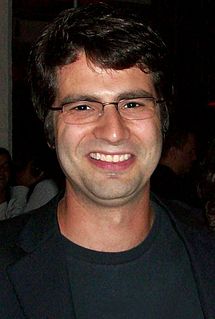A Quote by Ned Vizzini
A novel wouldn't be a book if there weren't some flights of fancy on the part of the author, stopping time to examine things, or to tell a joke.
Related Quotes
Holding this book in your hand, sinking back in your soft armchair, you will say to yourself: perhaps it will amuse me. And after you have read this story of great misfortunes, you will no doubt dine well, blaming the author for your own insensitivity, accusing him of wild exaggeration and flights of fancy. But rest assured: this tragedy is not a fiction. All is true.
But to be perfectly frank, this childish idea that the author of a novel has some special insight into the characters in the novel ... it's ridiculous. That novel was composed of scratches on a page, dear. The characters inhabiting it have no life outside of those scratches. What happened to them? They all ceased to exist the moment the novel ended.
Lately I've been thinking about the idea that all novels are, at least in some way, about the process of writing a novel - that the construction of the book and the lineage of people constructing novels are always part of the story the author is telling. I think the equivalent for memoir should be that all memoirs are, in some way, about the process of memory. Memoirs are made out of a confusing, flawed act of creation.
I know publishing now more as an author than with occasional peaks inside those elite offices than as an industry insider. It was difficult publishing a novel the first time around, while working behind the scenes, knowing all that has to happen to make a book a success and to still make the leap as an author.
It's very bad to write a novel by act of will. I can do a book of nonfiction work that way - just sign the contract and do the book because, provided the topic has some meaning for me, I know I can do it. But a novel is different. A novel is more like falling in love. You don't say, 'I'm going to fall in love next Tuesday, I'm going to begin my novel.' The novel has to come to you. It has to feel just like love.
In the biographical novel, there's only one person involved. I, the author, spend two to five years becoming the main character. I do that so by the time you get to the bottom of Page 2 or 3, you forget your name, where you live, your profession and the year it is. You become the main character of the book. You live the book.
Humor has the tendency to be funny once. If I tell you a joke, we're going to have a big laugh. But the second time I tell the joke, it's going to be a bit strange, and the third time you're going to ask if there's something wrong with me. So I am very cautious with jokes, but there is a lightness in my work.
Painting myself for others, I have painted my inward self with colors clearer than my original ones. I have no more made my book than my book has made me--a book consubstantial with its author, concerned with my own self, an integral part of my life; not concerned with some third-hand, extraneous purpose, like all other books.






































